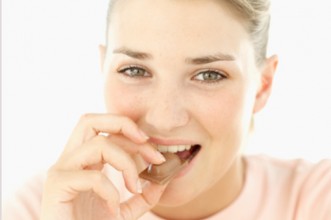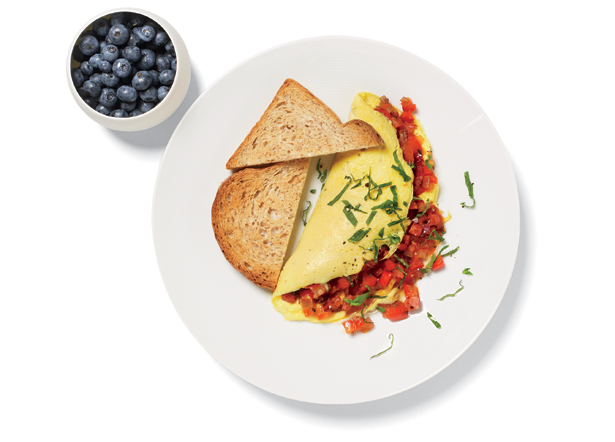EASTER is fast approaching, and with it an onslaught of foil-wrapped eggs, grinning chocolate bunnies and the most tempting of cocoa-based treats. But thanks to the current obsession with the virtues of green juices, the potential pitfalls of dairy and the evil reputation of sugar, the arrival of Easter’s chocolatey delights is enough to cause a mild panic among those who question their every mouthful. So, here’s 10 reasons to show that feeling guilty about indulging this Easter is completely unnecessary. Read, then go forth and indulge.
1. There are healthy ways to eat chocolate. “Look for a high-quality chocolate, preferably organic and from an ethical source, with a high cocoa mass (85 per cent),” This chocolate can be more expensive but is absolutely worth it – not only are you enjoying a more wholesome food with the benefits of antioxidant-rich cocoa, but you get the real cocoa butter as well, which stabilises blood-sugar levels and slows the absorption of the natural caffeine content present in the cocoa.”
2. It could make you live longer. Back in the Nineties, Harvard researchers found that people who eat chocolate up to three times a month live almost a year longer than those who eat too much or those who cut it out altogether. Presumably there are other factors involved, but we’re happy to hear it nonetheless.
3. Allowing yourself to indulge from time to time is good for your sanity – inflexible rules and “banned” foods will only make cravings worse. So, surely Easter is as good a time as any to relax a little? With anything, it’s always best in moderation, even when it’s a good thing. So this Easter, definitely indulge for your enjoyment, but be mindful of the quantities of chocolate you consume over the period.
4. Thrillingly, and perhaps surprisingly, chocolate could help to prevent obesity. A study by the American Chemical Society found that the specific flavanols (a group of antioxidants) found in cocoa could help fight weight gain and type-two diabetes. We’re guessing that moderation is key, but still…
5. It makes you happy. Cacao [chocolate in its rawest form] contains theobromine, a natural stimulant that some believe can boost your mood and even beat depression. It may cause the brain to produce more of a neurotransmitter called anandamide which would account for the euphoric sensation some feel when indulging in chocolate. A little of this antioxidant- and fat-rich chocolate – in moderation – is the perfect medicine. Chocolate contains chemicals such as trytophan and serotonin, the same chemicals we secrete when we’re in love or experiencing joy, so no wonder we become smitten.
6. Chocolate doesn’t directly cause spots. Yes, there’s certainly a strong link between diet and complexion, but the key is to achieve a healthy and balanced diet rather than to blame specific foods. Variety is the key, after all.
7. You could win a Nobel Prize… Maybe. The link between cognitive function and the eating of chocolate has long been touted, so a Columbia University study in 2012 took the number of Nobel Prize winners in a country as an indicator of general national intelligence and compared that with the nation’s chocolate consumption. The correlation was pleasingly high. Naturally, the Lindt-loving Swiss came out on top.
8. People have been eating it for thousands of years, in one form or another. “The ancient Mayans and Aztecs understood the health properties of cocoa beans over 3,000 years ago, cultivating them to use in the first hot ‘chocolate’ drink (a bitter concoction of cocoa, cinnamon and chilli, no dairy) said to possess aphrodisiac and revitalising qualities. In fact, the beans were seen as so valuable, they were even used as a form of currency.
9. Feeling guilty is pointless. If you’re going to eat chocolate, even the sweetest and most garishly packaged varieties, then just enjoy it. However much you worry, it won’t change anything, so you may as well be a little easier on yourself. If Easter isn’t an opportunity to enjoy chocolate, then we really don’t know what is.
10. It’s cheerful, delicious and it’s TRADITION.
Source Lisa Niven, Wendy O’Hare




